

Publications Regarding Israel at War | International Law
Articles

The Rules Have Changed: The German Arms Embargo and the War in Gaza
Written By: Prof. Yuval Shany, Prof. Amichai Cohen
Germany's recent decision to impose an embargo on the export of military equipment to Israel is a key example of the changing landscape of international law applicable to armed conflict over the last two decades.

It's Time to Talk About the Far-Reaching Potential Implications of Occupying Gaza
Written By: Dr. Eran Shamir-Borer
Against the backdrop of reports indicating the possibility of Israel fully occupying the Gaza Strip, it is essential to address the moral, strategic, international, security, economic, and social ramifications associated with such a move.

The implications of increased international recognition of a Palestinian State
Written By: Prof. Amichai Cohen
International law stipulates that for a state to exist, there must be a territory, a defined population, a government controlling that territory, and independence from the management of another state over that territory. What are the implications for Israel of more countries planning to recognize a Palestinian state?

Are Israelis abroad in danger of arrest over war crime allegations?
Written By: Dr. Eran Shamir-Borer
Kan English's Mark Weiss spoke to the Director of IDI's Center for Security and Democracy Dr. Eran Shamir-Borer over the potential of Israelis who have served in Gaza to be arrested and questioned when traveling abroad. They discuss why this is happening, the legal framework, the organizations involved, and steps soldiers can take to mitigate the risk of this happening to them while traveling.

International Law and the War with Hamas
Written By: Prof. Amichai Cohen
BICOM's Richard Pater speaks with IDI's Professor Amichai Cohen about international law in the context of Israel's war with Hamas. In this episode, they cover Israel's conduct in Gaza, the rules of engagement, humanitarian assistance, and Israel's goals in Gaza.

Limited Protection: Israel’s High Court of Justice Rejection of Gaza Humanitarian Aid Petition
Written By: Prof. Yuval Shany, Prof. Amichai Cohen
The Israeli Supreme Court rejected the Gaza Humanitarian Aid petition submitted by a number of Israeli human rights NGOs, stating that Israel's obligations are relative in nature and that the petitioners had failed to establish that these were generally violated during the Gaza war.
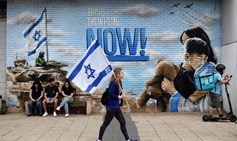
The War in Gaza: Who is Authorized to Approve a Deal for the Return of the Hostages in Exchange for the Release of Palestinian Prisoners?
Written By: Dr. Moran Kandelshtein-Haina
What are the legal steps that must be taken when a deal includes the freeing of Palestinian prisoners from Israeli prisons?

Israel’s Legal Quagmire: An Appraisal
Written By: Dr. Eran Shamir-Borer
Dr. Eran Shamir-Borer of the Israel Democracy Institute joined the Tel Aviv Review podcast to discuss Israel's complex legal challenges under international law amidst the ongoing war in Gaza.

A “Cramped Interpretation of International Jurisprudence”? Some Critical Observations on the Amnesty International Genocide Report on Gaza
Written By: Prof. Amichai Cohen, Prof. Yuval Shany
Amnesty International's report on the war in Gaza fails to prove acts of genocide by Israel, even when attempts are made to move the goalposts.

The ICC Palestine Case in the Aftermath of the Arrest Warrants Decisions – Part Two
Written By: Prof. Yuval Shany, Prof. Amichai Cohen
In the second installment of their two-part analysis of the ICC's decision to issue arrest warrants against Israeli leaders, Prof. Yuval Shany and Prof. Amichai Cohen examine the arguments behind the arrest warrants and steps Israel can take to prevent them from being realized.

ICC Arrest Warrants against Israeli Leaders - Legal and Practical Implications
Written By: Prof. Yuval Shany
IDI's Prof. Yuval Shany and Prof. Irwin Cotler discuss the ICC arrest warrants issued against Israel's Prime Minister and former Defense Minister. The event was hosted by the International Jewish Lawyers organization in partnership with the American Association of Jewish Lawyers and Jurists (AAJLJ).

JFNA & IDI Webinar on The Implications of the ICC Warrants
Written By: Dr. Eran Shamir-Borer,

The International Criminal Court Issues Arrest Warrants Against Prime Minister Netanyahu and Former Defense Minister Yoav Gallant
Written By: Dr. Eran Shamir-Borer, Prof. Amichai Cohen
The ICC's unprecedented arrest warrants against leaders of a democratic state carry severe and far-reaching consequences, yet Israel still has far-reaching options to mitigate the damage.
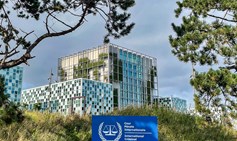
ICC Arrest Warrants Against Netanyahu and Gallant: Consequences and Potential Solutions
Written By: Prof. Amichai Cohen
Israel will likely not succeed in forcing the Court to annul its orders, and attempting to do so will make it even harder for its allies to support it. Instead, it can conduct an independent and effective investigation, avoiding problematic statements, and adhere to the laws of armed conflict.

The ICC Palestine Case in the Aftermath of the Arrest Warrants Decisions – Part One
Written By: Prof. Yuval Shany, Prof. Amichai Cohen
On November 21, 2024, the Pre-Trial Chamber of the International Criminal Court (ICC) issued four decisions. These deal with various legal matters arising out of the Prosecutor’s May 20 request to issue arrest warrants as part of his ongoing investigation of the Situation in Palestine, in the context of the War in Gaza.

“Well, it Depends”: The Explosive Pagers Attack Revisited
Written By: Prof. Yuval Shany, Prof. Amichai Cohen
IDI experts Prof. Amichai Cohen and Prof. Yuval Shany analyze the legality of the September explosions targeting Hezbollah pagers and walkie-talkies through three legal frameworks: the right to use force, principles of distinction and proportionality, and the legality of employing these devices under laws regulating choice of weapons.

The Sde Teiman HCJ Judgment: Too Little, Too Late?
Written By: Prof. Amichai Cohen, Prof. Yuval Shany
A recent judgment of the Israeli Supreme Court held that conditions in a notorious detention center must comply with Israeli law.

Investigating Allegations of Detainee Abuse is Israel’s Moral and Legal Duty - And a Diplomatic Necessity
Written By: Prof. Amichai Cohen, Dr. Eran Shamir-Borer
Investigating allegations of abuse at the Sde Teiman detention facility is Israel's moral and legal duty as a rule-based democracy and protects the country on the international legal and diplomatic front.

Another Brick in the Wall? The ICJ Advisory Opinion on Israeli Policies and Practices in the Occupied Palestinian Territory
Written By: Prof. Amichai Cohen, Prof. Yuval Shany
The ICJ Advisory Opinion on Israel's policies in the territories of the West Bank (Judea and Samaria) are illegal but was more divided on other salient factual and legal findings.

In Search of Complementarity: Israel’s Possible Responses to ICC Arrest Warrants
Written By: Prof. Yuval Shany, Prof. Amichai Cohen
If properly structured, both a commission of inquiry and a preliminary examination by the Israeli police could arguably meet existing complementarity standards.

The International Court of Justice (ICJ) Order on the IDF Operation in Rafah: Commentary and Implications
Written By: Dr. Eran Shamir-Borer
The issuance of additional interim orders in the genocide proceedings underway at the ICJ limits Israel’s operational wiggle room in Rafah, but leaves it with some flexibility in the interpretation and implementation of the new orders.

What Constitutes Professional Judicial Conduct? Barak’s Lesson to the ICJ Judges
Written By: Prof. Suzie Navot
The International Court of Justice in The Hague (ICJ) issued new temporary orders against Israel this week. Justice Barak’s dissenting opinion would seem to offer an important lesson for the future. Professional, focused, and well-founded legal criticism—as opposed to the very different means that are currently being widely discussed and pursued—is likely the best way to deal with the ICJ.

The Prosecutor’s Uphill Legal Battle?: The Netanyahu and Gallant ICC Arrest Warrant Requests
Written By: Prof. Yuval Shany, Prof. Amichai Cohen
In this article, we wish to identify and discuss here some potential problems we identify in the part of the request pertaining to Netanyahu and Gallant, at least as it was presented in the Prosecutor’s short announcement and by the expert report supporting it.

The Effects of ICC Warrants on Israel
Written By: Prof. Amichai Cohen
IDI's Prof. Amichai Cohen, an expert in international law, explains the repercussions that ICC warrants may have on Israel. Should these warrants be issued, 120 countries would be obligated to execute them. They could severely damage Israel's international image, impacting Israeli officials as well as economic and cultural cooperation

ICC Arrest Warrants Would Harm Israel at Home and on the International Stage
Written By: Prof. Amichai Cohen
From damage to scientific collaboration to cancellation of arms deals, arrest warrants for senior Israeli officials from the International Criminal Court in the Hague would pose a serious challenge to Israel
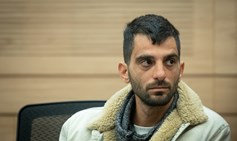
The Sanctions Against Israelis
Written By: Prof. Amichai Cohen
The US, the UK, France and other states have announced the imposition of economic sanctions on Israeli residents who are believed to be complicit in 'settler violence.' This document aims to outline the framework of international economic sanctions and contextualize the sanctions imposed on Israelis.

Between Rhetoric and Effects: The ICJ Provisional Measures Order in South Africa v. Israel
Written By: Prof. Amichai Cohen, Prof. Yuval Shany
In its order on provisional measures, the Court appeared to engage in transactional justice. It used harsh rhetoric to describe the catastrophic situation in the Gaza Strip while minimizing the impact of the order by adopting ambiguous language on the contents and scope of the plausibility test.
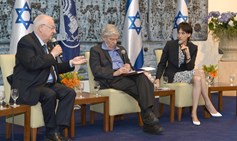
Justice Aharon Barak's Opinion Illuminated What the ICJ Missed
Written By: Prof. Suzie Navot,
While the ICJ decision briefly mentions the immediate context of the lawsuit, namely the Hamas attack on October 7, 2023, Judge Barak directs them to the full picture that they did not address. He writes about the events of October 7 as Israelis know them to be true.
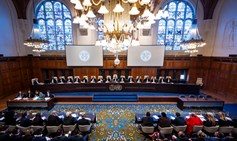
On the Delicate Balance of the ICJ Decision on Temporary Measures
Written By: Prof. Yuval Shany
While neither Israel nor South Africa achieved a complete win, one thing is clear: the story of Israel before the ICJ is only beginning
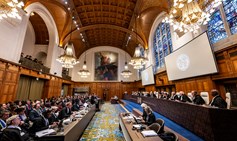
Statement on the ICJ Decision On Provisional Measures
Written By: Prof. Amichai Cohen
Prof. Amichai Cohen, a senior fellow at the Israel Democracy Institute and an expert in international law, made the following comments on the International Court of Justice (ICJ) decision today regarding provisional measures in the case of South Africa v. Israel on the Application of the Genocide Convention.

ICJ Provisional Measures in South Africa v. Israel
Written By: Prof. Yuval Shany
On Friday, January 26, the International Court of Justice issued its Opinion granting provisional measures in South Africa’s genocide case against Israel. Joining the Just Security Podcast to discuss the Court’s Opinion and its implications are law professors Adil Haque, Oona Hathaway, and IDI's Yuval Shany.
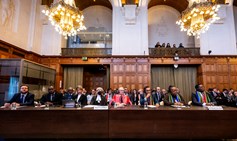
On South Africa's Misinterpretation of Amalek in Jewish Tradition
Written By: Adv. Shlomit Ravitsky Tur-Paz
Beyond the fact that the Torah does not make the call to commit genocide, the Tanach and its interpretations in fact obligate the Jewish people to abide by the laws of war. To a large extent, humanity's earliest laws of war can be found in the Bible.
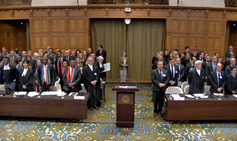
South Africa vs. Israel at the International Court of Justice: A Battle Over Issue-Framing and the Request to Suspend the War
Written By: Prof. Amichai Cohen, Prof. Yuval Shany
The International Court of Justice (ICJ) at the Hague held public hearings in the case against Israel for alleged violations of the Genocide Convention. In this essay we address three aspects of the case: the ways the parties framed the events, the request to suspend Israeli military operations, and the conditions for issuing provisional measures.
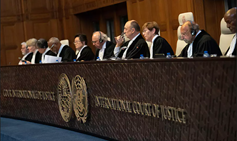
International Court of Justice in The Hague Genocide Proceedings -
Written By: Adv. Shlomit Ravitsky Tur-Paz
One of the claims brought forth in the Application against Israel that it is committing genocide against the Palestinians is that many senior members of the government made references to the biblical precept to wipe out the memory of the ancient Amaleks. This is my professional opinion on the meaning of these locutions and the use made of them in the Application.
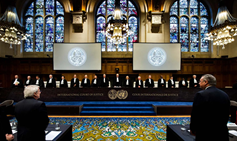
The ICJ Hearings on Israel and the War on Hamas
On January 11th, the court will begin by hearing South Africa’s oral argument, with Israel presenting its counter argument on January 12th.
What does the international law state and what are the possible implications of these proceedings on the ongoing war and Israel’s international standing? We’ve compiled a shortlist of important information you should have.
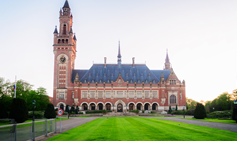
Explainer: South Africa’s Case Against Israel at the International Court of Justice
Written By: Prof. Amichai Cohen
The ICJ is hearing allegations that Israel has violated the Convention on the Prevention and Punishment of the Crime of Genocide. What is the ICJ? How is the government responding? What are the implications for the war against Hamas and Israel’s international standing?
All the answers in a special IDI explainer.

Is Israel Doing Enough to Abide by International Law?
Written By: Prof. Amichai Cohen
IDI's Prof. Amichai Cohen answers a series of questions on international law and its dealings with the laws of war.

What Does Proportionality in War Mean?
Written By: Prof. Amichai Cohen
IDI's Prof. Amichai Cohen answers a series of questions on international law and its dealings with the laws of war.

What Are the "Laws of Armed Conflict" And Who Is a Legitimate Target?
Written By: Prof. Amichai Cohen
IDI's Prof. Amichai Cohen answers a series of questions on international law and its dealings with the laws of war.

What Does International Law Have to Say Regarding War?
Written By: Prof. Amichai Cohen
IDI's Prof. Amichai Cohen answers a series of questions on international law and its dealings with the laws of war.

What Is International Law and is Israel Obliged to Abide By It?
Written By: Prof. Amichai Cohen
IDI's Prof. Amichai Cohen answers a series of questions on international law and its dealings with the laws of war.
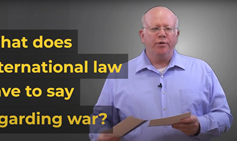
International Law and the War in Gaza
Written By: Prof. Amichai Cohen
IDI's Prof. Amichai Cohen answers a series of questions on international law and its dealings with the laws of war.
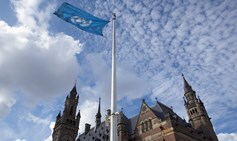
Selective Use of Facts and the Gaza Genocide Debate
Written By: Prof. Yuval Shany, Prof. Amichai Cohen
The recent application by South Africa to the International Court of Justice brought against Israel under the Genocide Convention illuminates how international law and international institutions can be employed to address the Israel-Hamas war.
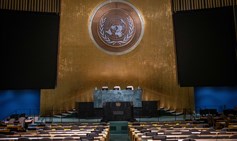
Israel's War in Gaza and International Law
Written By: Prof. Amichai Cohen, Adaya Kisos
International law is a normative system that regulates the conduct between states, organizations recognized by international law and at times, individuals. This explainer presents an overview of international law in conflict and its application in Israel's war against Hamas.
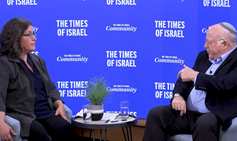
What Matters Now to Prof. Amichai Cohen: Is the IDF acting legally in Gaza?
Written By: Prof. Amichai Cohen
Is the IDF acting legally and ethically in Gaza? The Times of Israel recently held an hour-long webinar on this topic with IDI's Prof. Amichai Cohen.

The Hostage Situation in Gaza and the Responsibilities of the International Community
Written By: Prof. Amichai Cohen, Dr. Shelly Aviv Yeini, Prof. Tamar Hostovsky Brandes
This article discusses the responsibilities of the international community with respect to the ongoing war in Gaza, and particularly focusing on responsibilities with regard to the hostage situation.
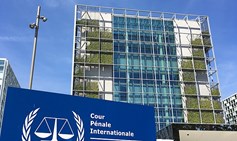
International Law "Made In Israel" Vs. International Law "Made For Israel"
Written By: Prof. Amichai Cohen, Prof. Yuval Shany
Tendentious interpretations of international law are not surprising considering the high emotions surrounding the long and bloody Israeli-Palestinian conflict. However, to serve its purpose guiding the conduct of States and retain a high degree of legitimacy, international law must serve as a common legal language.
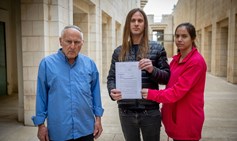
Does the High Court of Justice Intervene in Decisions to Release Prisoners?
Written By: Dr. Moran Kandelshtein-Haina
Appeals to the HCJ to intervene in decisions relating to the release of prisoners are fairly common, but the Court has repeatedly rejected these appeals, noting that on issues of national defense and diplomacy, the bounds for judicial oversight are particularly narrow.

Israel's War Cabinet: A Brief History of War Powers and Institutional Ambiguity
Written By: Prof. Amichai Cohen, Prof. Yuval Shany
The Israeli war cabinet and the complex institutional structure related to war informs greatly on Israel’s decision-making.
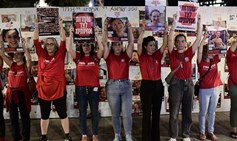
Women in War Under International Law
Written By: Adv. Anat Thon Ashkenazy
Now, when it is clear that Hamas’s murderous attack was unprecedented in its extreme violence, including sexual violence, the relevant international bodies—such as the UN Security Council, UN Women, and the International Red Cross—must respond to these incidents.
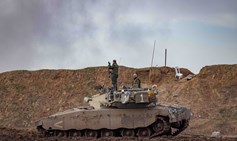
Unpacking Key Assumptions Underlying Legal Analyses of the 2023 Hamas-Israel War
Written By: Prof. Amichai Cohen, Prof. Yuval Shany
The current round of violence between Hamas and Israel has already given rise to many expressions of legal opinion. In this essay, we map some key assumptions and unpack how they can significantly affect ongoing legal debates and deliberations.
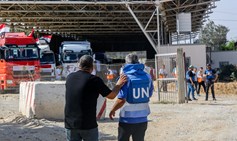
The War on Hamas and International Law
Written By: Prof. Amichai Cohen, Tamar Hostovsky Brandes
International law does not forbid the evacuation of residents to the southern Gaza Strip; on the contrary, it would appear to demand of Israel that it warns residents and encourages them to leave.
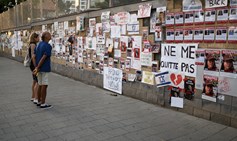
The Hamas Abductions and International Law
Written By: Prof. Amichai Cohen
Details and clarifications on the international crimes committed by the Hamas in their abduction of Israeli civilians, and the responsibilities attached to these crimes.

A Moment of Truth: International Humanitarian Law and the Gaza War
Written By: Prof. Amichai Cohen
Hamas’s horrendous October 7 attack on Israeli civilians and Israel’s anticipated response pose a unique challenge to scholars and practitioners of the Law of Armed Conflict or International Humanitarian Law (IHL), possibly a challenge they have never faced before.
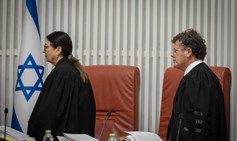
Israel needs a strong supreme court now more than ever
Written By: Dr. Guy Lurie
Justice Hayut's retirement from the presidency of the Supreme Court was well-known in advance, however, the Minister of Justice's refusal to convene the Judicial Selection Committee leaves Israel with a temporary replacement during a national emergency.

Israel – Hamas 2023 Symposium – Beyond the Pale: IHRL and the Hamas Attack on Israel
Written By: Prof. Amichai Cohen, Prof. Yuval Shany, Prof. Tamar Hostovsky Brandes
The article explores the applicability of international human rights law (IHRL) to the atrocities committed by Hamas on October 7, 2023. Such an analysis is important to fill in gaps in IHL and to establish the jurisdiction of IHRL mechanisms over the violations committed.

Special State of Emergency in Israel’s Court System
Written By: Dr. Guy Lurie
What is a special state of emergency and who declares it?
Minister of Justice Levin declared a "special state of emergency" on October 7th, which has since been extended and is currently valid until October 20th. How does this affect the justice system in Israel?
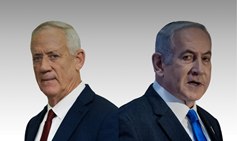
The Case for a Lean, Unified Wartime Cabinet
Written By: Prof. Amichai Cohen
The main demand made by Benny Gantz, chair of the National Unity party, for entering an emergency government is the establishment of a war cabinet. Why is this important and what would the powers of a war cabinet be?
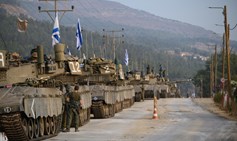
The War on Hamas: The Decision to Go to War, in Theory and Practice in Israel
Written By: Prof. Amichai Cohen, Dr. Eran Shamir-Borer, Adv. Mirit Lavi
Is the operation in Gaza a war, who is authorized declare war and what is the role of the cabinet and the government after war is declared?
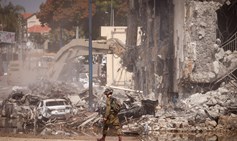
Israel at War: Special Situations and Emergency Events
Written By: Prof. Amichai Cohen, Adv. Mirit Lavi
The government has once again declared a "special home front situation" as the war in the north intensifies. What does this mean?
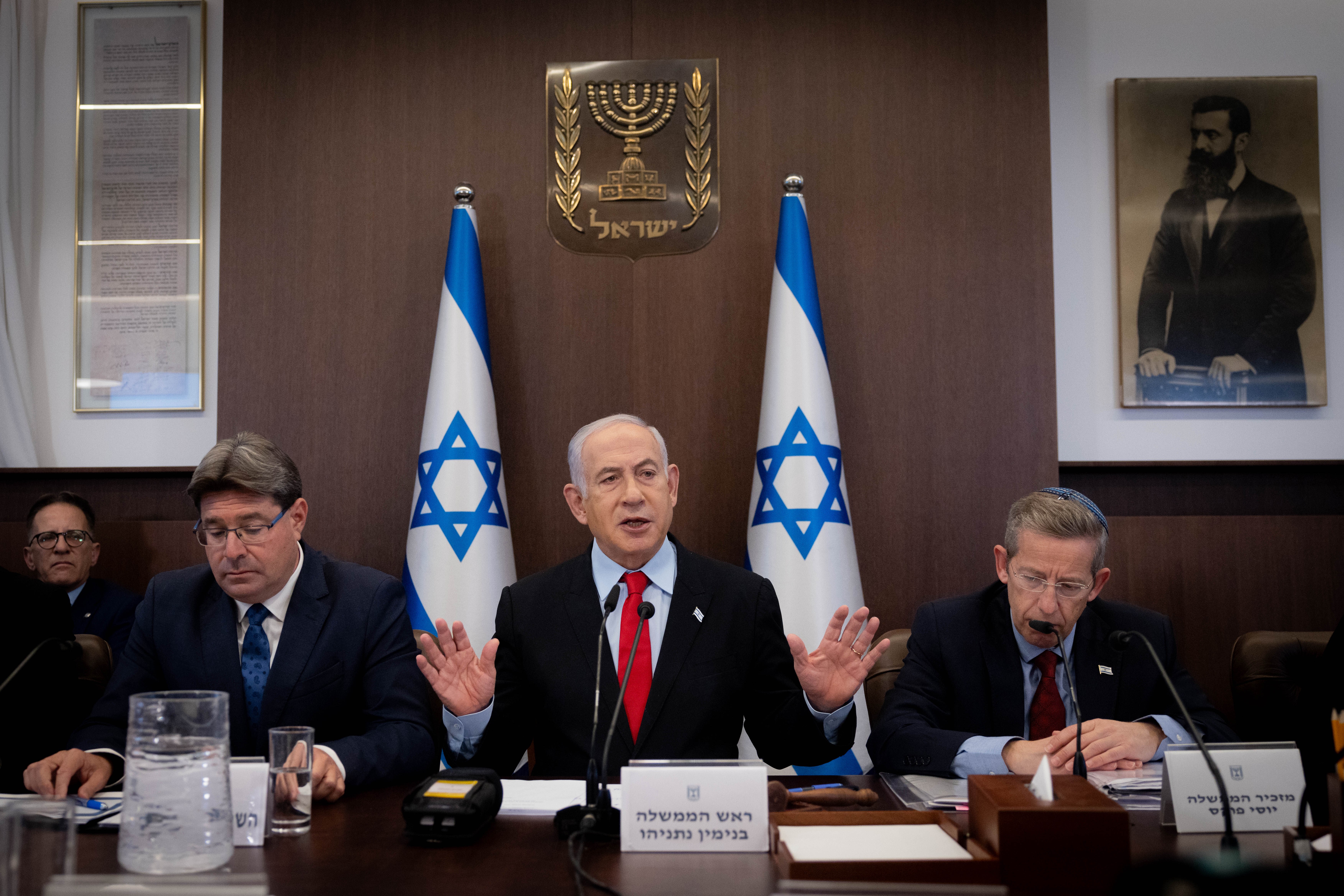
Emergency Governments in Israel
Written By: Dr. Assaf Shapira
As the brutal attack from Gaza continues, the possibility of a change in the composition in the government is being bandied about. What kind of government is possible and what has been done in the past?


